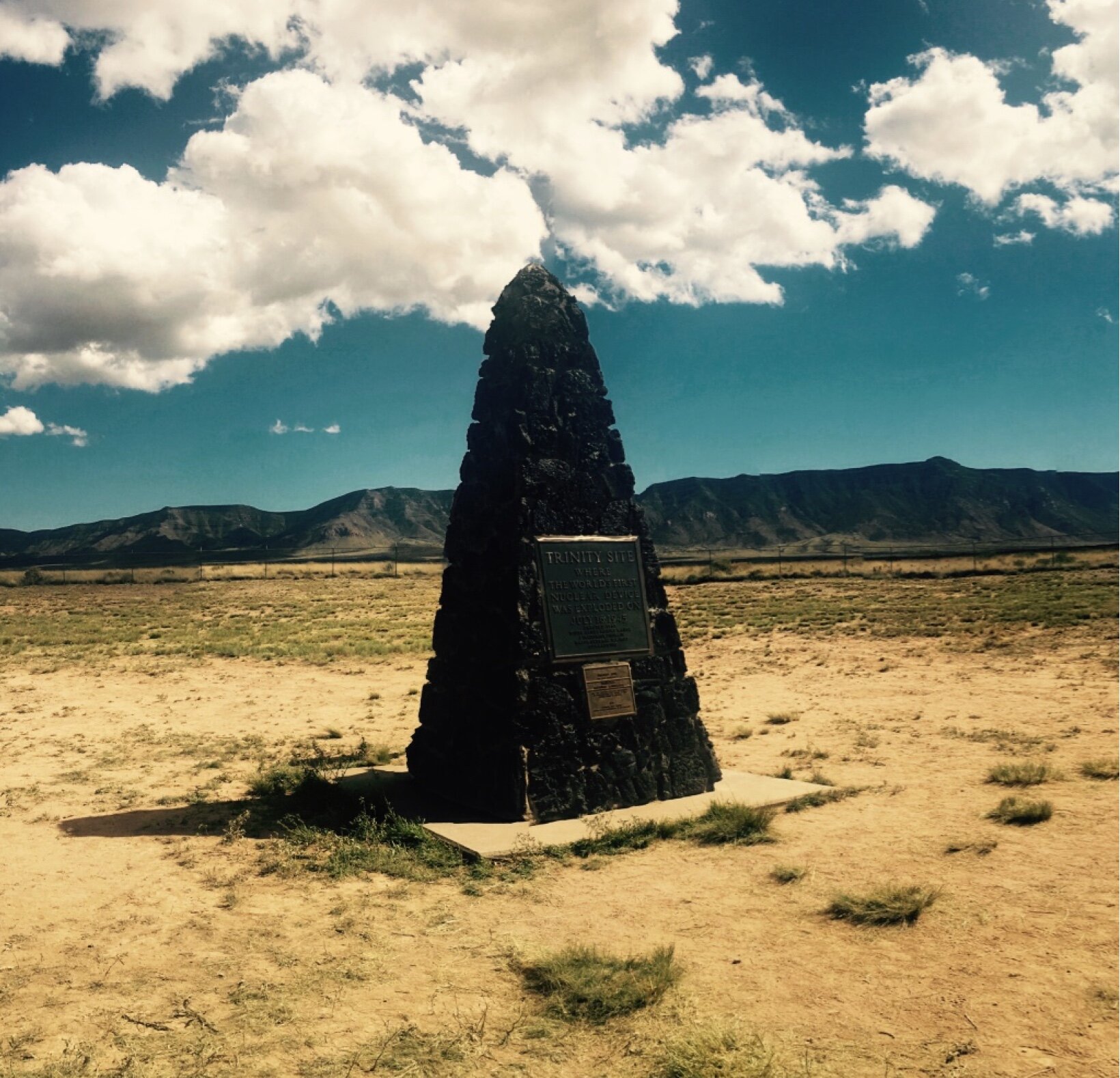Trinity Site
On July 16th, 1945 humanity entered into the era of nuclear warfare. The objective of the Manhattan Project was achieved here, in the remote New Mexican desert, when the world’s first nuclear device was exploded. The site is located on the White Sands Missile Range, which is still active to this day, so visitation is limited to two days per year. On the first Saturday in April and October, the gates open from 8:00am to 2:00pm and you must leave by 3:30pm. No reservations or escorts are required. Ground zero and the McDonald Ranch House are open to freely walk around.
GETTING THERE
The Stallion Gate is on the north end of the White Sands Missile Range along US-380, ~12miles East of Interstate 25 (Exit 139 toward San Antonio and Carrizozo). Follow signs for NM-525 toward Stallion Range Center. From 380, the road is mostly paved and can be driven by any vehicle. There will be quite a long line of cars, but it moves rather quickly. From 380 it should take ~30-60min to get to the parking lot at ground zero (~25 miles south). Near the Stallion airfield officers will check your I.D.
GROUND ZERO
From the parking lot, the walk to the epicenter is flat and ~1/4 long. Here you will see the ominous obelisk memorializing the detonation. If you look carefully you can see the outline of the shallow crater that was created by the explosion. Scattered throughout the area are little clusters of course green glass known as Trinitite. Trinitite was formed when the intense heat of the explosion melted the sand in the desert into glass, and it is mildly radioactive. Also at the site are small fragments of the steel tower that held Gadget (the name given the the trinity bomb). A flatbed trailer displays an actual atomic bomb casing, much like the Fat Man bomb that was dropped on Nagasaki, which was of the same design as Gadget.
MCDONALD RANCH HOUSE
The McDonald Ranch was the only permanent structure in the area at the time when the U.S. military took over the land in 1942. This simple farmhouse was used as a makeshift laboratory for assembling bomb components. To keep dust out, plastic was taped over the windows and the device was assembled in the master bedroom. The blast, two miles away, blew out most of the home’s windows, but did not affect the structure of the house. Years of neglect and intrusion of water through the roof left the house in rough shape until 1984, when the National Park Service restored it to how it would have looked in July of 1945. You can drive to the ranch from the parking lot (don’t get any ideas of exploring the rest of the missile range, army vehicles are patrolling to keep you from wandering) or take the free shuttle bus.
RADIOACTIVITY
Although the crater was initially more radioactive than anticipated, due to the formation of Trinitite, the dose of radiation you will receive during a visit here is well within the limits considered to be safe. Countless skeptics who do not believe this bring their own dosimeters, but they all come to the same conclusion after spending the morning walking around the site.














